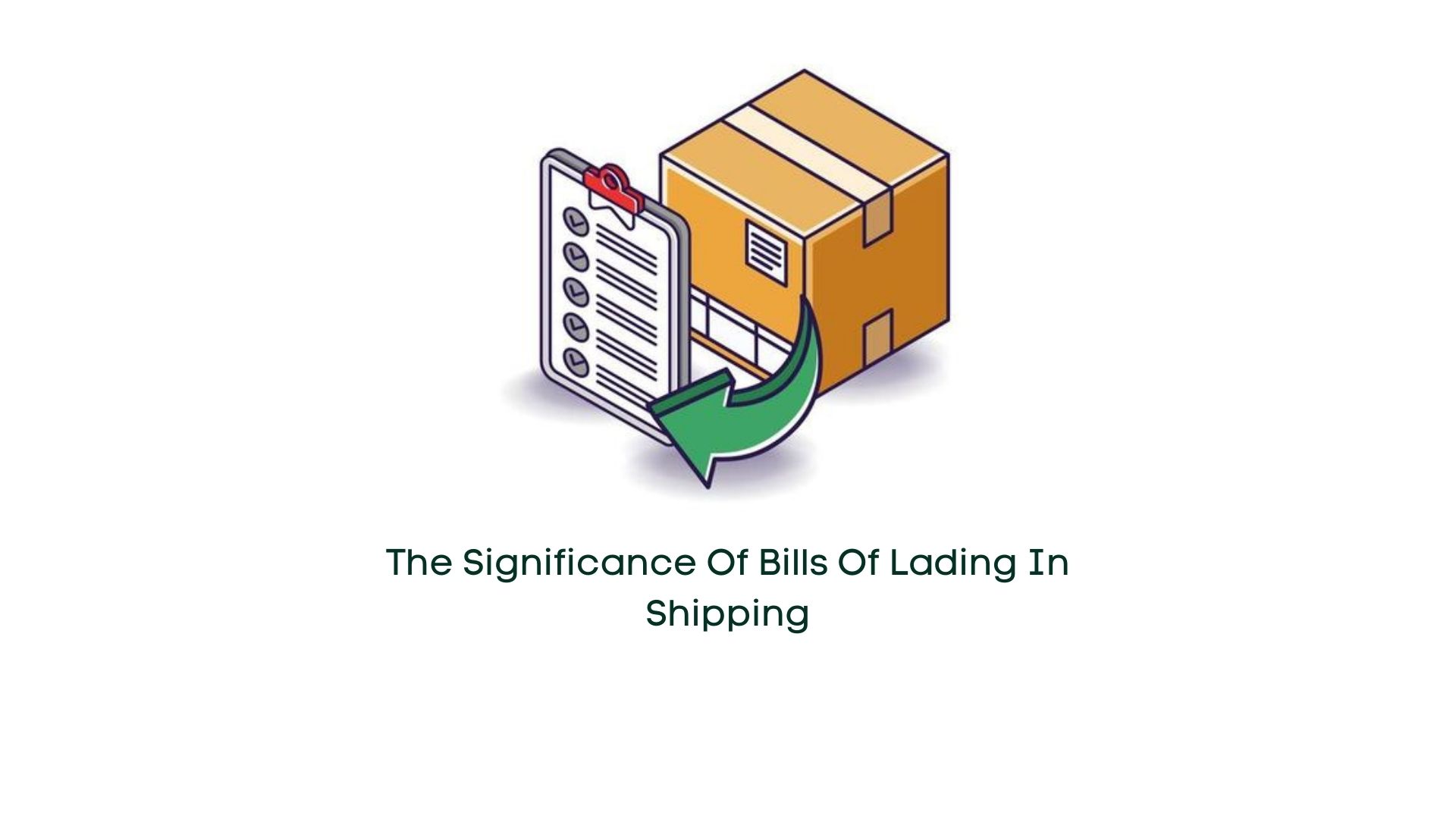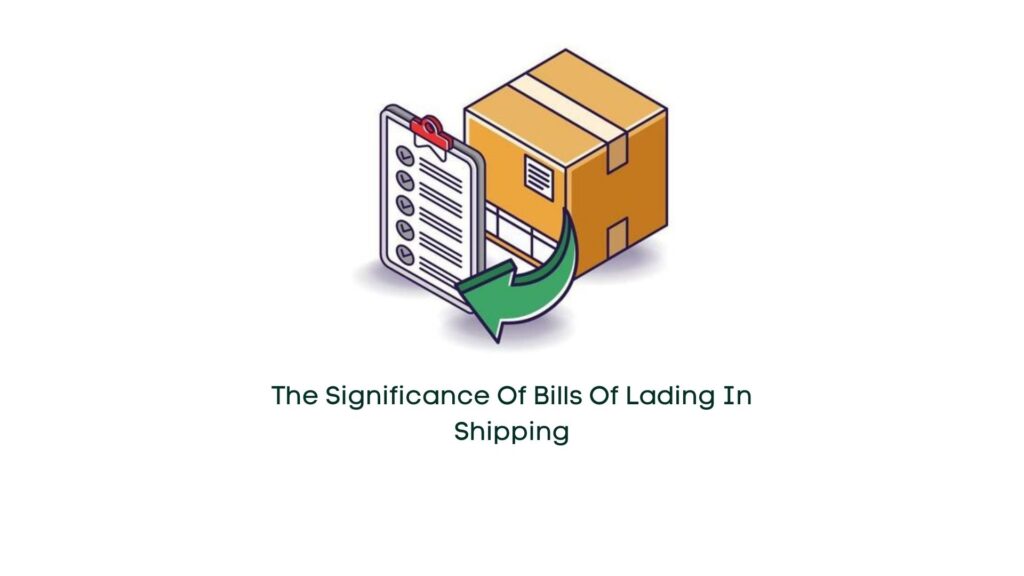
01 Mar The Significance of Bills of Lading in Shipping

In the realm of the shipping industry, Bills of Lading stand as pivotal documents, wielding considerable legal weight. These documents furnish both the driver and the carrier with indispensable particulars crucial for the seamless processing and accurate invoicing of freight shipments.
Purpose of Bills of Lading
Bills of Lading serve three fundamental roles:
- They serve as tangible evidence that goods have been successfully loaded onto the ship.
- They facilitate exporters in sending shipment advice to importers.
- They operate as documents of title, granting possession of the goods to the individual holding the document.
Functioning as evidence of the contract of carriage between the Carrier and the Shipper or Freight Owner, the bill of lading ensures the transportation of freight adheres to the stipulations outlined in the buyer-seller agreement.
The Importance of Bills of Lading in International Trade
International trade, a cornerstone of economic, social, and political stability for centuries, significantly impacts the gross domestic product of nations. Bills of Lading, serving as written proof of a contract for the carriage and delivery of goods via sea, play a vital role in this ecosystem. They delineate the agreement between a shipper and a carrier, acknowledging the receipt of goods and undertaking their delivery upon voyage completion.
Contents of Bills of Lading
Typically, a bill of lading includes:
- Shipping line's name and logo
- Ports of loading and discharge, along with the place of delivery
- Vessel's name and number
- Shipper's name and address
- Details of packaging and containers
- Description and quantity of goods
- Container status and seal number
- Weight and volume metrics
- Freight amount and relevant billing information
- Shipping bill number and date
- Signature and initials of the Chief Officer
Types of Bills of Lading
There are three primary types of Bills of Lading:
- Negotiable and Straight Bill of Lading
- Shipped and Received for Shipment Bills
- Clean and Claused Bill of Lading
Bills of Lading as Legal Documents
As a receipt, a bill of lading serves as evidence of goods conveyed and shipped, providing prima facie evidence in case of disputes regarding quantity or condition. Furthermore, as a document of title, it grants holders the authority to deal with the goods as if they were the owner, facilitating transactions even while goods are in transit.
Bills of Lading in Credit Transactions
In letter of credit transactions, Bills of Lading play a critical role as documents of credit. They provide sellers with assurance of payment, relying on the creditworthiness of the buyer’s bank rather than the buyer themselves, thus ensuring a reliable mechanism of payment regardless of any disputes arising from the sale contract.


No Comments